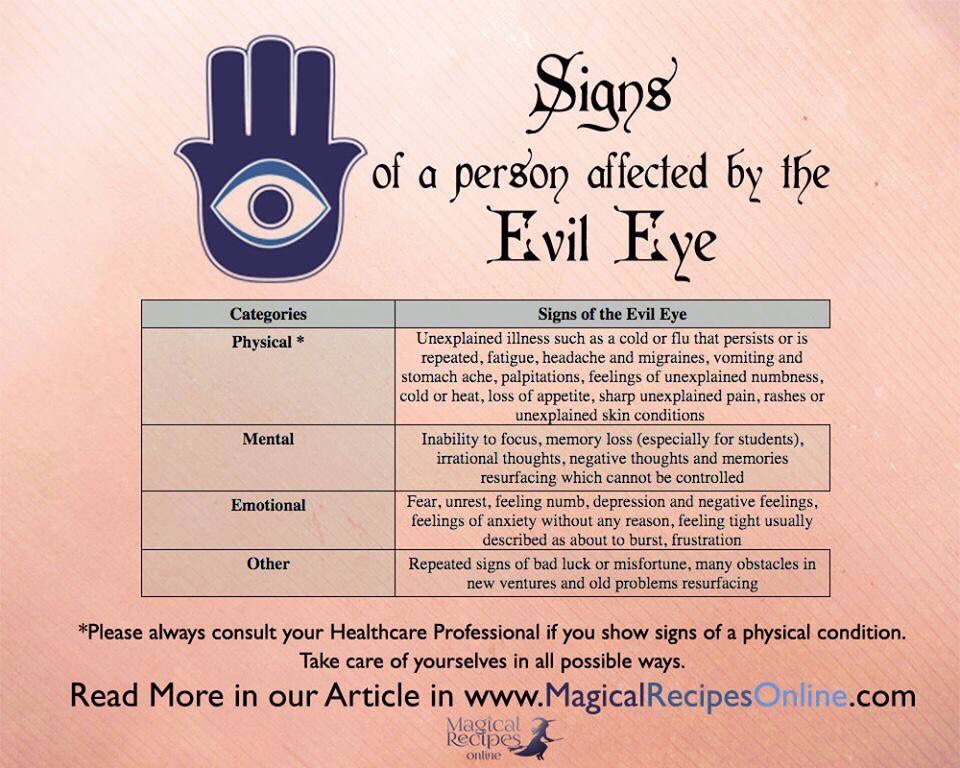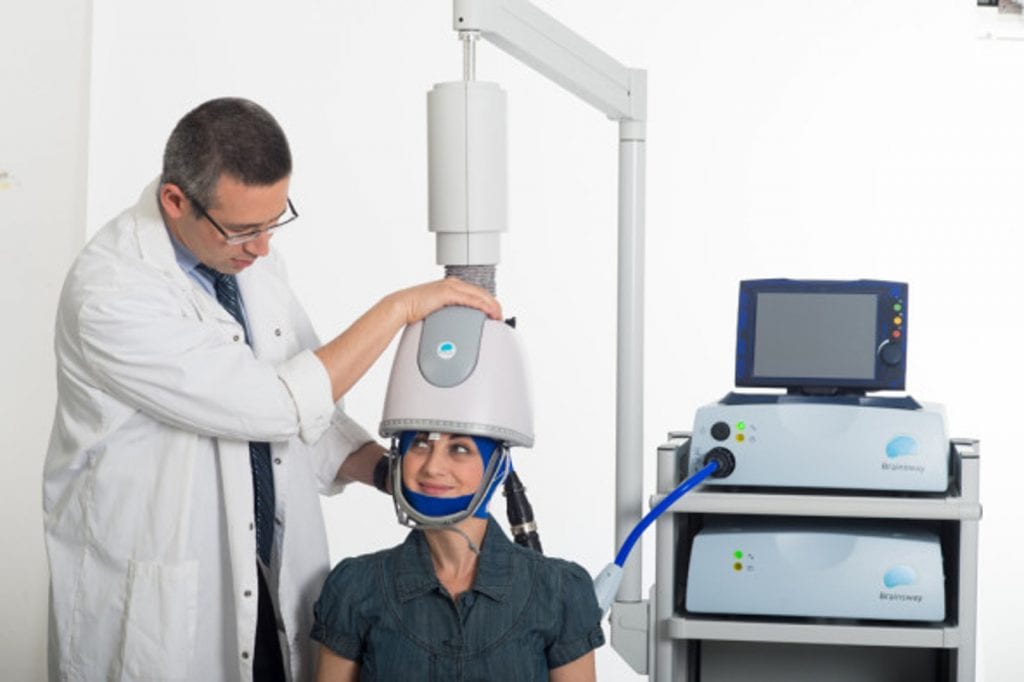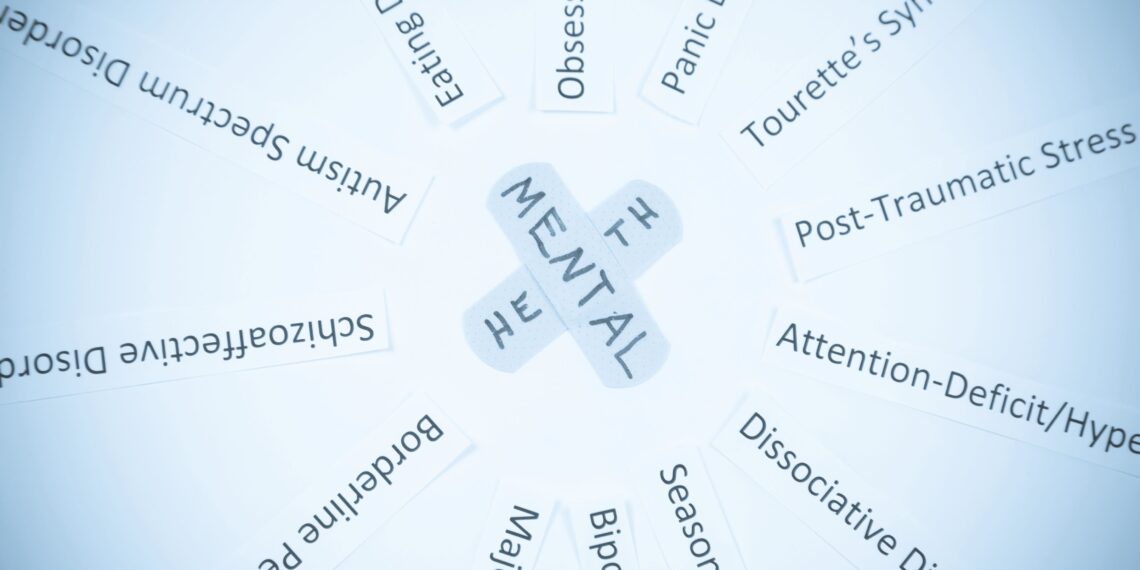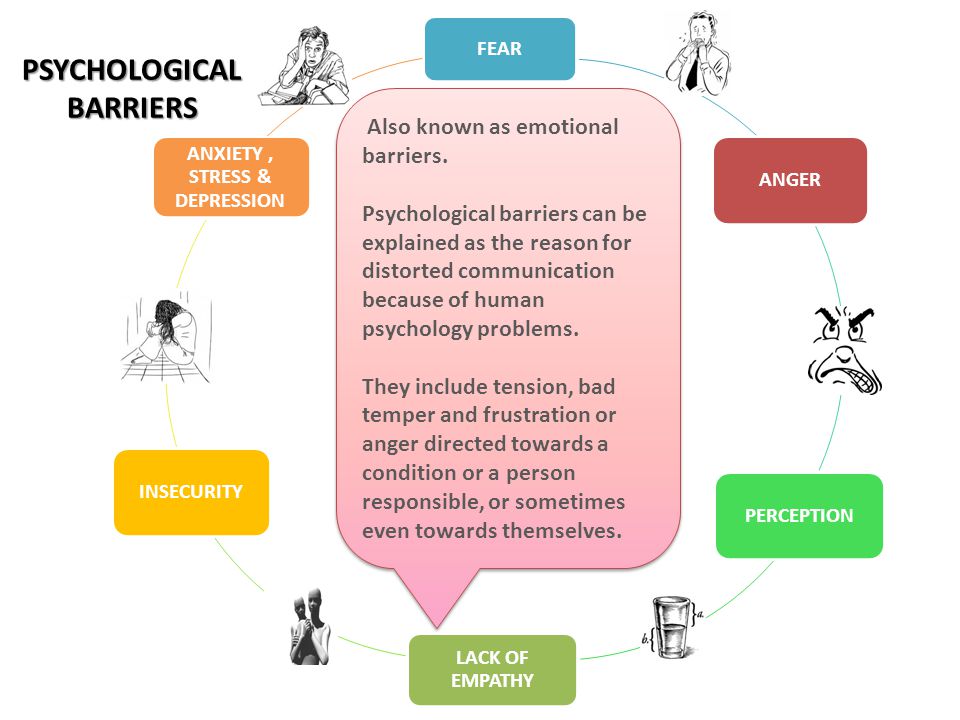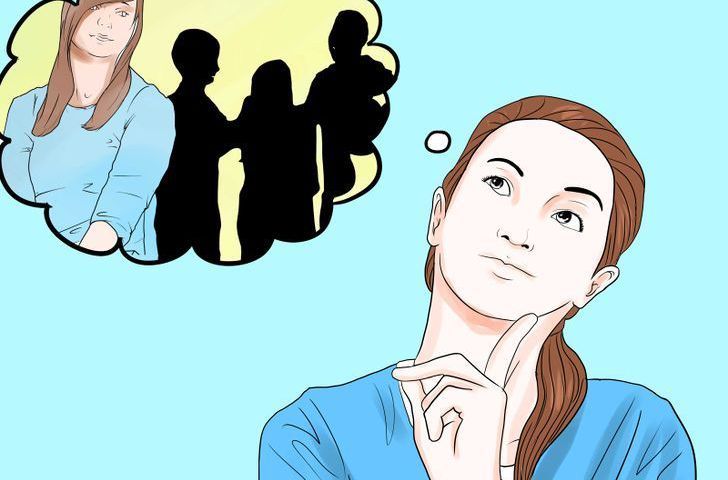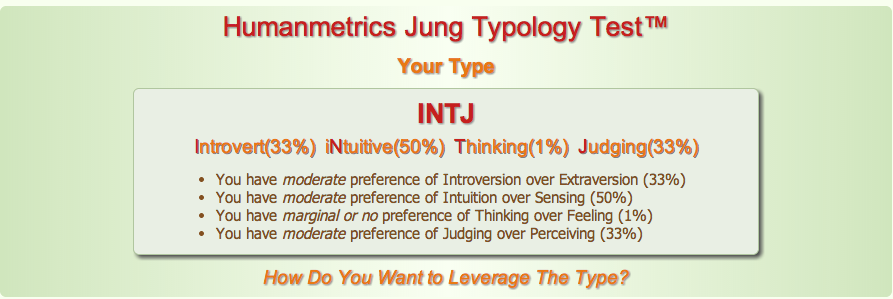Anxiety feelings for no reason
Feeling Anxious for No Reason? This Is for You
Feeling nervous but you don’t know why? We look at why anxiety might arise without a clear cause.
The factors that spark anxiety are different for everyone and can be subtle. Many people are familiar with anxious feelings but don’t know their cause, so it feels like the anxiety is happening for “no reason.”
Everyone gets anxious sometimes, but some people are more prone than others. Possible causes of anxiety can include genetics, stressful situations, previous traumas, medications, and physical health issues.
Not all of the things that cause anxiety are obvious or observable in your daily life. Whatever the cause of your anxiety, know that support is available.
Even if you aren’t aware of it, there is a cause for your anxiety symptoms.
It can take time to recognize patterns or learn how to identify what activates your anxiety. It may seem like the symptoms have come out of nowhere — but that’s because your body works on autopilot when it detects a threat.
When the nervous system detects danger it activates your fight, flight, or freeze response. This causes anxiety symptoms that prepare your body for action, like:
- a fast heartbeat
- sweating
- dizziness
- breathlessness
- a feeling of doom
The anxiety response is helpful in many instances, but it can become a problem when your nervous system misinterprets something harmless as a threat. In these cases, you’re reacting to something that’s not a true threat (a “false alarm”).
Over time, your body may start generalizing possible threats so that something related to a thing you’re afraid of also causes anxiety.
Can panic attacks have no cause?
A panic attack is an episode where you feel sudden and intense fear or discomfort. These attacks typically feel like they come out of nowhere, peaking within about 10 minutes before fading.
There are two types of panic attacks — expected and unexpected. An expected panic attack has a known cause, while it’s difficult to pinpoint the cause of unexpected panic attacks.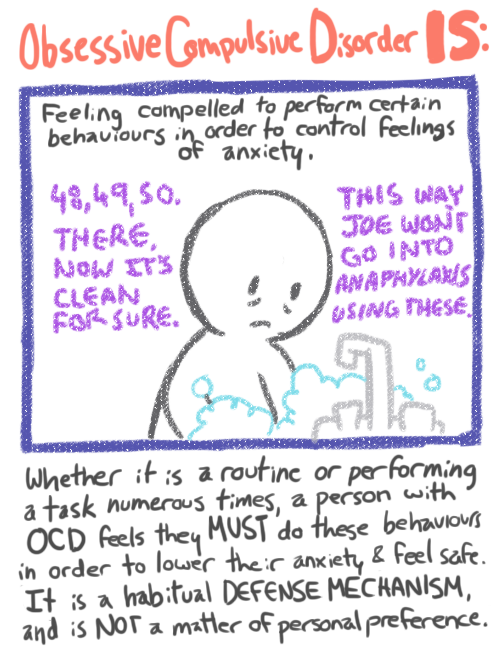
Someone’s first panic attack is likely to be unexpected because it’s a new experience. However, with time, you may learn to understand what causes them.
Once you start to see a pattern in where and when they happen, you can find ways to cope with panic attacks.
Whether or not you know what activates your anxiety, its symptoms can be very distressing.
You might have anxiety for many reasons — and some are harder to notice than others. Possible causes include:
1. Anxiety disorders
If your anxiety lasts for a long time and significantly disrupts your daily life, you may be living with an anxiety disorder.
It can take some time to work out whether there’s a pattern to your anxiety. Before you detect a pattern it can seem like your anxiety occurs at random.
The type of anxiety disorder you are diagnosed with depends on the context where your anxiety arises. Anxiety disorders include:
- generalized anxiety disorder, where anxiety arises on most days over a 6-month period and occurs across many contexts
- panic disorder, defined as having recurring panic attacks that may come on without warning
- agoraphobia, where anxiety arises in public or crowded places
- social anxiety disorder, where anxiety arises in social situations
- specific phobias, where your fears arise in response to particular objects or situations
Keeping an anxiety journal can help you work out your triggers.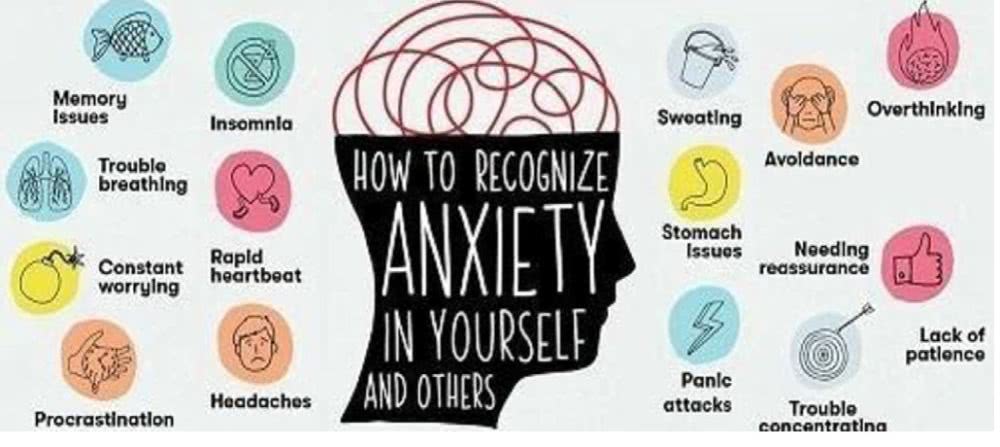 You might also share your findings with a mental health professional to help them help you.
You might also share your findings with a mental health professional to help them help you.
2. Genetics
The National Institutes of Mental Health (NIMH) states that “both genetic and environmental factors contribute to the risk of developing an anxiety disorder.” This means that if you have a close relative with an anxiety disorder, you’re more likely to have one.
A 2017 review reports that there is a “moderate genetic risk,” with a heritability of around 30%.
3. Trauma triggers
When someone experiences trauma, they may notice physical and mental effects long after the traumatic situation ends. Common types of trauma include abuse, neglect, and accidents.
The symptoms of post-traumatic stress can include:
- anxiety
- intrusive memories
- avoiding people or places that remind you of the trauma
- hypervigilance
- disrupted sleep
Another symptom of trauma is being activated by trauma triggers. If you experience anxiety or panic that seems to come out of nowhere, it’s possible that it was activated by a trauma trigger you’re unaware of.
Triggers could be anything that reminds you of the trauma, whether consciously or subconsciously. Examples include:
- sounds, like fireworks or sirens
- certain smells
- objects, like certain pieces of clothing
- places or situations, like driving a car or experiencing unwanted physical touch
- emotional states
If you think you may have symptoms of post-traumatic stress, it’s important to talk with a mental health professional for support.
4. Certain foods
For some people, certain foods can spark or worsen anxiety. Examples include:
- sugar
- caffeine
- alcohol
- processed foods
On the other hand, various foods may help with your mental health. A nutritious diet that includes protein, whole grains, fruits, and vegetables can help your body and mind feel their best.
5. Physical health problems
According to the NIMH, some physical health problems can cause anxiety symptoms or make them worse. These include heart rhythm irregularities (arrhythmia) and thyroid problems.
These include heart rhythm irregularities (arrhythmia) and thyroid problems.
Certain medications or substances can also create anxiety symptoms. If you think your medication is causing anxiety, consider looking up the common side effects and talking with a doctor about your options.
If you’re having anxiety but you don’t know why, here are some things you can do to manage it.
Talking with a therapist
Various types of talk therapy (psychotherapy), such as cognitive behavioral therapy (CBT) and exposure response prevention (ERP), are evidence-based interventions to desensitize yourself to triggers.
Therapy can help you work out possible causes of your anxiety. Once you know your triggers, you can work with a therapist to overcome them and better tolerate any anxiety that arises.
Looking for a therapist, but not sure where to start? Psych Central’s How to Find Mental Health Support resource can help.
Guided breathing exercises
You can reduce your anxiety and stress levels naturally by activating your body’s relaxation response.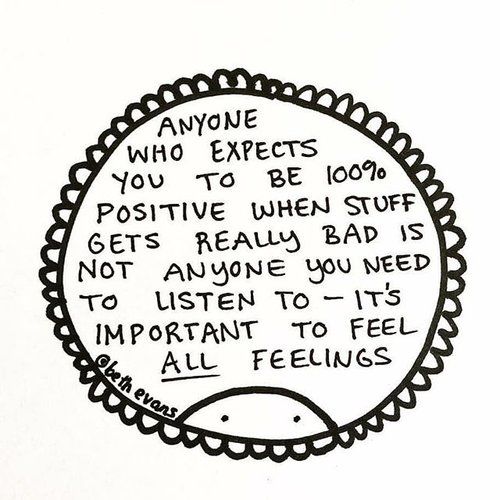 One way to achieve this is through guided breathing exercises.
One way to achieve this is through guided breathing exercises.
Breathing deeply for a few minutes is a fast and effective way to calm your nerves.
Meditation
You can train your mind to be less reactive to your thoughts and feelings through mindfulness meditation.
For example, if you are running late for work, your reflex may be to worry, “I’m going to lose my job if I’m late!” Meditation teaches you to step outside yourself and identify that this is just a thought — not reality.
In fact, you’ve experienced this thought before and you know there’s no truth to it. By recognizing the thought, you can let it go and move forward.
Follow healthy lifestyle habits
Following a healthy, balanced diet and building regular exercise into your routine can improve your mental health.
It can help to eat whole foods, including lots of fruits and vegetables, and get the recommended amounts of protein, carbohydrates, and fat. It may also be a good idea to avoid or limit your intake of caffeine and alcohol.
When you experience anxiety, the cause isn’t always obvious. There are different types of anxiety disorders and possible reasons why you may be having anxiety symptoms.
You can do many things to manage and reduce your anxiety, including learning its cause even when you feel like there isn’t one. It may take time, but you can learn to prevent and reduce your anxiety symptoms.
Feeling Anxious for No Reason? This Is for You
Feeling nervous but you don’t know why? We look at why anxiety might arise without a clear cause.
The factors that spark anxiety are different for everyone and can be subtle. Many people are familiar with anxious feelings but don’t know their cause, so it feels like the anxiety is happening for “no reason.”
Everyone gets anxious sometimes, but some people are more prone than others. Possible causes of anxiety can include genetics, stressful situations, previous traumas, medications, and physical health issues.
Not all of the things that cause anxiety are obvious or observable in your daily life. Whatever the cause of your anxiety, know that support is available.
Whatever the cause of your anxiety, know that support is available.
Even if you aren’t aware of it, there is a cause for your anxiety symptoms.
It can take time to recognize patterns or learn how to identify what activates your anxiety. It may seem like the symptoms have come out of nowhere — but that’s because your body works on autopilot when it detects a threat.
When the nervous system detects danger it activates your fight, flight, or freeze response. This causes anxiety symptoms that prepare your body for action, like:
- a fast heartbeat
- sweating
- dizziness
- breathlessness
- a feeling of doom
The anxiety response is helpful in many instances, but it can become a problem when your nervous system misinterprets something harmless as a threat. In these cases, you’re reacting to something that’s not a true threat (a “false alarm”).
Over time, your body may start generalizing possible threats so that something related to a thing you’re afraid of also causes anxiety.
Can panic attacks have no cause?
A panic attack is an episode where you feel sudden and intense fear or discomfort. These attacks typically feel like they come out of nowhere, peaking within about 10 minutes before fading.
There are two types of panic attacks — expected and unexpected. An expected panic attack has a known cause, while it’s difficult to pinpoint the cause of unexpected panic attacks.
Someone’s first panic attack is likely to be unexpected because it’s a new experience. However, with time, you may learn to understand what causes them.
Once you start to see a pattern in where and when they happen, you can find ways to cope with panic attacks.
Whether or not you know what activates your anxiety, its symptoms can be very distressing.
You might have anxiety for many reasons — and some are harder to notice than others. Possible causes include:
1. Anxiety disorders
If your anxiety lasts for a long time and significantly disrupts your daily life, you may be living with an anxiety disorder.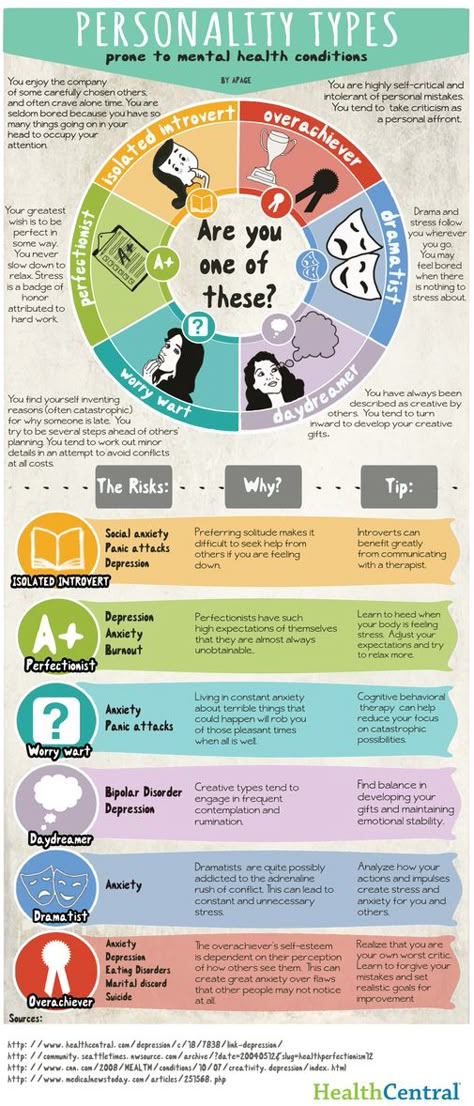
It can take some time to work out whether there’s a pattern to your anxiety. Before you detect a pattern it can seem like your anxiety occurs at random.
The type of anxiety disorder you are diagnosed with depends on the context where your anxiety arises. Anxiety disorders include:
- generalized anxiety disorder, where anxiety arises on most days over a 6-month period and occurs across many contexts
- panic disorder, defined as having recurring panic attacks that may come on without warning
- agoraphobia, where anxiety arises in public or crowded places
- social anxiety disorder, where anxiety arises in social situations
- specific phobias, where your fears arise in response to particular objects or situations
Keeping an anxiety journal can help you work out your triggers. You might also share your findings with a mental health professional to help them help you.
2. Genetics
The National Institutes of Mental Health (NIMH) states that “both genetic and environmental factors contribute to the risk of developing an anxiety disorder. ” This means that if you have a close relative with an anxiety disorder, you’re more likely to have one.
” This means that if you have a close relative with an anxiety disorder, you’re more likely to have one.
A 2017 review reports that there is a “moderate genetic risk,” with a heritability of around 30%.
3. Trauma triggers
When someone experiences trauma, they may notice physical and mental effects long after the traumatic situation ends. Common types of trauma include abuse, neglect, and accidents.
The symptoms of post-traumatic stress can include:
- anxiety
- intrusive memories
- avoiding people or places that remind you of the trauma
- hypervigilance
- disrupted sleep
Another symptom of trauma is being activated by trauma triggers. If you experience anxiety or panic that seems to come out of nowhere, it’s possible that it was activated by a trauma trigger you’re unaware of.
Triggers could be anything that reminds you of the trauma, whether consciously or subconsciously. Examples include:
- sounds, like fireworks or sirens
- certain smells
- objects, like certain pieces of clothing
- places or situations, like driving a car or experiencing unwanted physical touch
- emotional states
If you think you may have symptoms of post-traumatic stress, it’s important to talk with a mental health professional for support.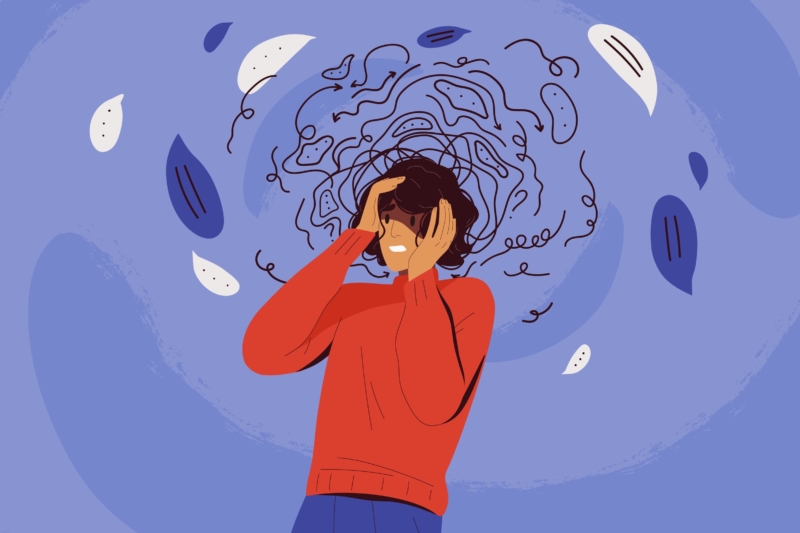
4. Certain foods
For some people, certain foods can spark or worsen anxiety. Examples include:
- sugar
- caffeine
- alcohol
- processed foods
On the other hand, various foods may help with your mental health. A nutritious diet that includes protein, whole grains, fruits, and vegetables can help your body and mind feel their best.
5. Physical health problems
According to the NIMH, some physical health problems can cause anxiety symptoms or make them worse. These include heart rhythm irregularities (arrhythmia) and thyroid problems.
Certain medications or substances can also create anxiety symptoms. If you think your medication is causing anxiety, consider looking up the common side effects and talking with a doctor about your options.
If you’re having anxiety but you don’t know why, here are some things you can do to manage it.
Talking with a therapist
Various types of talk therapy (psychotherapy), such as cognitive behavioral therapy (CBT) and exposure response prevention (ERP), are evidence-based interventions to desensitize yourself to triggers.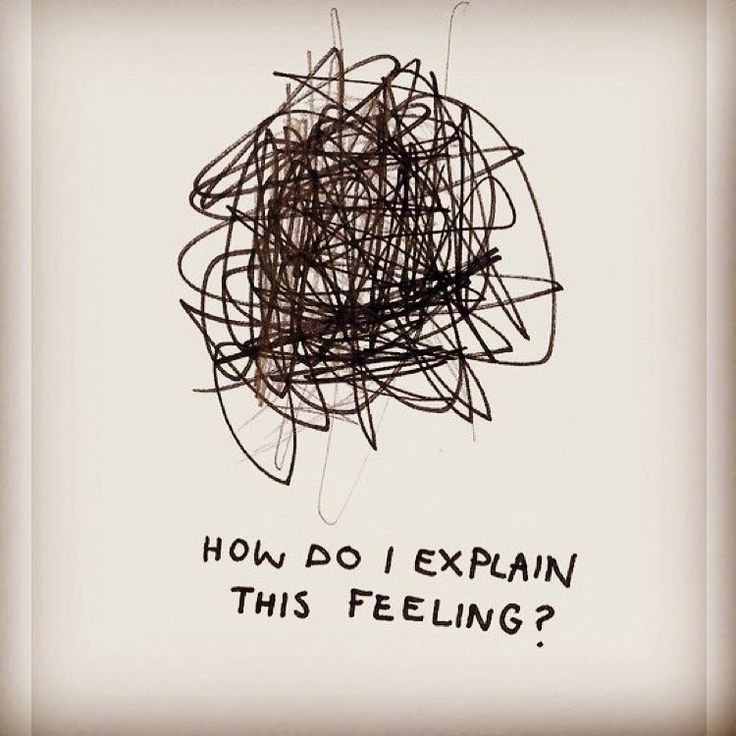
Therapy can help you work out possible causes of your anxiety. Once you know your triggers, you can work with a therapist to overcome them and better tolerate any anxiety that arises.
Looking for a therapist, but not sure where to start? Psych Central’s How to Find Mental Health Support resource can help.
Guided breathing exercises
You can reduce your anxiety and stress levels naturally by activating your body’s relaxation response. One way to achieve this is through guided breathing exercises.
Breathing deeply for a few minutes is a fast and effective way to calm your nerves.
Meditation
You can train your mind to be less reactive to your thoughts and feelings through mindfulness meditation.
For example, if you are running late for work, your reflex may be to worry, “I’m going to lose my job if I’m late!” Meditation teaches you to step outside yourself and identify that this is just a thought — not reality.
In fact, you’ve experienced this thought before and you know there’s no truth to it.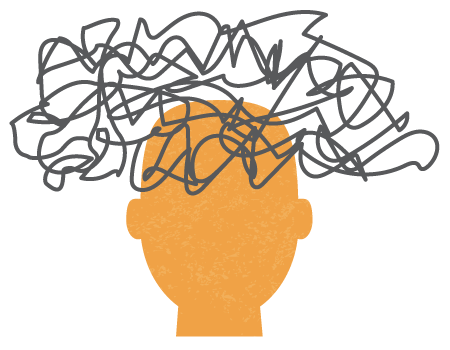 By recognizing the thought, you can let it go and move forward.
By recognizing the thought, you can let it go and move forward.
Follow healthy lifestyle habits
Following a healthy, balanced diet and building regular exercise into your routine can improve your mental health.
It can help to eat whole foods, including lots of fruits and vegetables, and get the recommended amounts of protein, carbohydrates, and fat. It may also be a good idea to avoid or limit your intake of caffeine and alcohol.
When you experience anxiety, the cause isn’t always obvious. There are different types of anxiety disorders and possible reasons why you may be having anxiety symptoms.
You can do many things to manage and reduce your anxiety, including learning its cause even when you feel like there isn’t one. It may take time, but you can learn to prevent and reduce your anxiety symptoms.
treatment, how to get rid of anxiety, how to deal with anxiety for no reason
Anxiety is a negatively colored mood with feelings of worry, tension, and fear. In moderation, such emotions are useful: they help to mobilize forces and find a way out of extreme situations. But there must be grounds for concern, and normally it lasts a limited period of time.
In moderation, such emotions are useful: they help to mobilize forces and find a way out of extreme situations. But there must be grounds for concern, and normally it lasts a limited period of time.
If a person constantly experiences a feeling of anxiety and anxiety for no reason, this may indicate the presence of a mental disorder. In the absence of help, constant tension wears out the nervous system and the body as a whole, which leads to a breakdown in adaptation mechanisms and the development of chronic diseases.
If you notice that you cannot relax for a long time, then you should think about visiting a specialist.
In pathological cases, a state of anxiety and restlessness without a cause manifests itself both mentally and physically.
Mental symptoms:
- constant feeling of fear and excitement for no reason,
- poor concentration and attention,
- sleep disorders,
- emotional lability, irritability, tearfulness,
- inability to relax and fully engage in daily activities or communication,
- the need to reassure others that everything is okay.
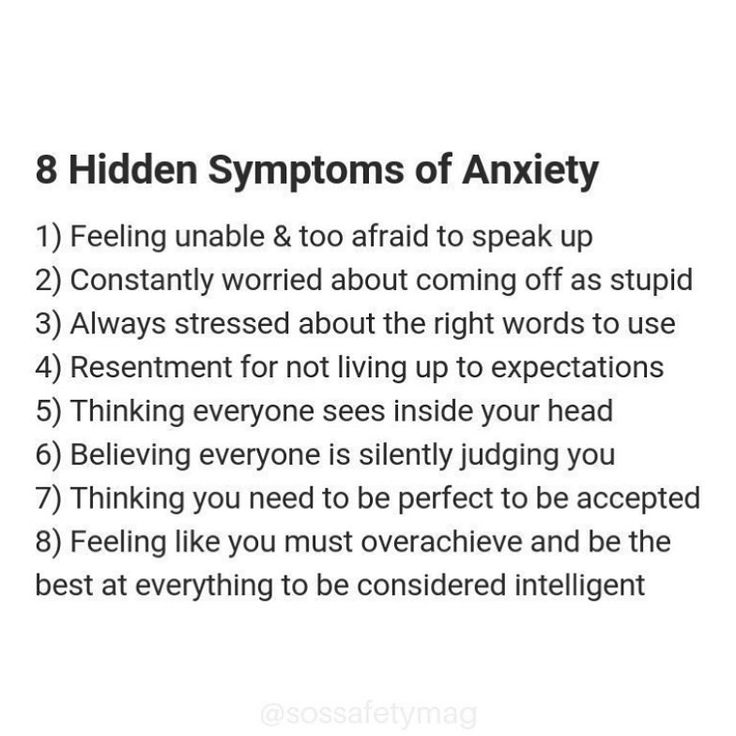 At the same time, words of support do not bring relief.
At the same time, words of support do not bring relief.
Physical symptoms:
- rapid breathing and heartbeat,
- headaches, pain in the abdomen and in the region of the heart,
- excessive sweating,
- eating disorders: increased or loss of appetite,
- weakness,
- shivering, chills,
- stool disorders: frequent urge, constipation,
- feeling short of breath,
- nausea,
- muscle spasms and pain.
Unreasonable anxiety and anxiety increase or smooth out from time to time. Exacerbations often accompany stress: conflicts, important events, illness. Normally, a person recovers quickly after the situation is resolved, but when upset, negative emotions do not go away.
The intensity of anxiety varies from mild to severe. The extreme is panic. If you ignore an anxiety state for a long time for no reason, then panic attacks can join it. They overtake unexpectedly and sometimes without a good enough reason, but after this episode, a person begins to avoid situations similar to the one in which it happened: public transport, an elevator, or just a crowd of people. This greatly reduces the quality of life and can lead to social isolation.
This greatly reduces the quality of life and can lead to social isolation.
Causes of causeless anxiety and anxiety
The occurrence of anxiety disorder is influenced by heredity. It has been found that certain brain structures and features of biological processes play an important role in the emergence of fear and anxiety. Personal characteristics, somatic health problems, lifestyle and various types of addictions also matter. Sometimes there is no cause for causeless anxiety and worry. Negative feelings usually have a trigger - an event or thought that causes an anxious response. However, most people are not aware of their triggers and believe that their emotions are groundless. In this case, only a specialist will help to understand why excitement arises for no reason.
There are a number of diseases, the symptoms of which are constant anxiety. With causeless fear and anxiety, the reasons may be as follows:
- Generalized Anxiety Disorder: Persistent nervousness and worry over small things that are usually visible to others and last 6 or more months.
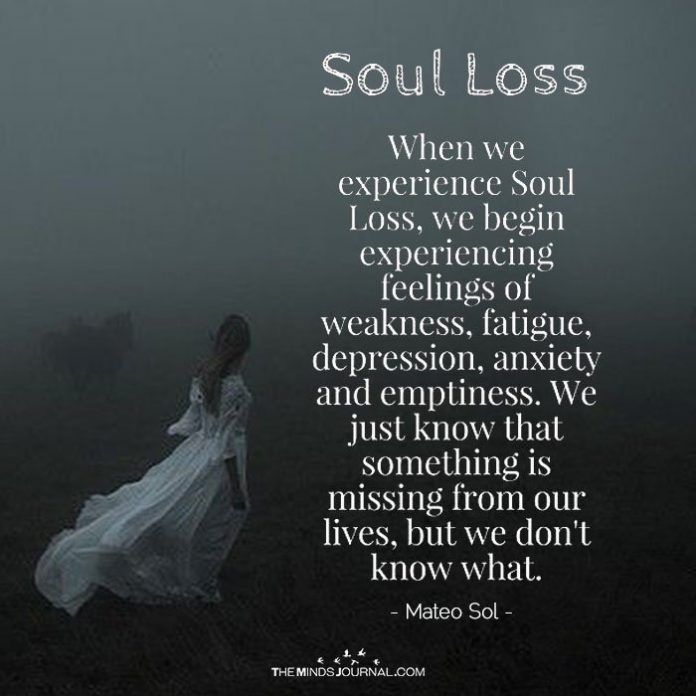 It starts in adolescence and intensifies with age.
It starts in adolescence and intensifies with age. - Obsessive-compulsive disorder: obsessive thoughts and fears that are accompanied by obsessive actions that do not bring relief. Obsessive-compulsive disorder is distinguished - a person is indomitably haunted by memories that reproduce a traumatic situation.
- Phobias: irrational fear of any, even mundane, things. Accompanied by uncontrolled panic and physical manifestations.
- Panic attack - an excruciating and sudden attack of panic, which is accompanied by a fear of death and vivid somatic symptoms. The regular occurrence of panic attacks means the development of a panic disorder.
- Post-traumatic stress disorder: occurs after a severe traumatic situation and is accompanied by high levels of anxiety, avoidance and flashbacks.
These are the most common examples, but pathological anxiety can be a symptom of other disorders or the result of a failed stress management. If you want to understand why there is a feeling of anxiety for no reason, you should consult a doctor. Without clarifying the main factor and working on it, it is impossible to restore health and peace of mind.
Without clarifying the main factor and working on it, it is impossible to restore health and peace of mind.
What to do with causeless anxiety and anxiety
It is difficult to live in constant stress. If you experience causeless anxiety and fear of what to do, the following list will tell you:
- Talk to someone you trust. This could be a relative, a close friend, a therapist, or a helpline employee. People are social creatures, so communication is a good way to relieve internal tension.
- Find a way to calm down quickly. There is not always a person with whom you can share. Therefore, it is important to find a suitable method that will help you relax: breathing techniques, soothing music, aromatherapy, self-massage, and more. If you cannot independently choose a technique that quickly helps with anxiety for no reason, a specialist will tell you what to do.
- Add physical activity to your life. It is a natural and effective remedy for anxiety.
 Moderate sport relieves stress, lowers stress hormones, and strengthens the nervous system. Get at least 30 minutes of physical exercise a day.
Moderate sport relieves stress, lowers stress hormones, and strengthens the nervous system. Get at least 30 minutes of physical exercise a day. - Normalization of lifestyle. Get enough sleep, eat well, give up bad habits. This stabilizes physical performance and neurotransmitter levels, which helps maintain emotional balance.
- Start keeping a diary. Notes help identify patterns of anxiety flare-ups, understand the causes, and notice early signs of their occurrence. Also, thanks to this, you will begin to focus more on positive events that you might not have noticed before.
With excitement for no reason, everyone who regularly encounters this wants to know what to do. There is no universal method, however, the 5 steps listed above are recommended for every person with increased anxiety. This may be enough to alleviate symptoms. But if self-help techniques do not give the desired effect, then with a regularly occurring feeling of anxiety for no reason, you need to find out from a specialist what to do.
Treatment of causeless feelings of anxiety and restlessness
Regardless of the cause of pathological anxiety, professional help is the only complete method to eliminate the problem. If you have constant excitement and anxiety for no reason, you can quickly and effectively learn from a psychiatrist or psychotherapist how to get rid of this condition.
Due to the diversity of anxiety disorders, their therapy must be adapted to the individual clinical picture and diagnosis. Therefore, only a highly qualified specialist who has experience working with different types of anxiety conditions can tell you how to get rid of an anxiety state for no reason. For example, the therapy algorithm for a patient with obsessive-compulsive disorder (OCD) is different from the help for panic attacks.
For a state of anxiety and anxiety without a cause, treatment includes the following approaches:
- Psychotherapy. The most promising direction, which not only eliminates the symptom, but identifies the cause and fights it.
 Therapy teaches when feeling anxiety for no reason, how to get rid of acute attacks of anxiety, relax, look at life situations differently. The doctor will help to uncover the main causes of your fears and work them out. The patient receives the tools to overcome anxiety and uses them successfully. Cognitive-behavioral therapy is usually used: in the course of treatment, the patient encounters an object of concern and gradually gains confidence that he can control the situation.
Therapy teaches when feeling anxiety for no reason, how to get rid of acute attacks of anxiety, relax, look at life situations differently. The doctor will help to uncover the main causes of your fears and work them out. The patient receives the tools to overcome anxiety and uses them successfully. Cognitive-behavioral therapy is usually used: in the course of treatment, the patient encounters an object of concern and gradually gains confidence that he can control the situation. -
Medical therapy. Depending on the type of anxiety and the presence of associated mental or physical health problems, antidepressants, sedatives, sleeping pills, and other drugs may be prescribed. When anxiety is felt without a cause, drug treatment will alleviate the symptoms and improve the quality of life of the patient during his psychotherapeutic work on the underlying cause. Uncontrolled medication leads to dangerous side effects and withdrawal syndrome, so they can only be used according to the individual course prescribed by the doctor.

It is recommended to use a combination of psychotherapeutic and drug treatment, but sometimes only the first one is enough.
You should not put off visiting a doctor if you feel that experiences are preventing you from living. Over time, the symptoms worsen and other severe mental illnesses join: depression, neurotic disorders, and more. If the normalization of lifestyle does not help, it means that you will understand how to get rid of unreasonable anxiety only from a psychotherapist. With a timely appeal to a competent specialist, only a few sessions of psychotherapy may be enough for recovery.
Thanks to modern psychotherapeutic approaches, hundreds of people are making great strides every day in the fight against anxiety disorders. There is no need to endure the painful burden of fear and anxiety, because timely assistance allows you to achieve excellent results: the patient will fully recover and return to a full life, and the improvement will be noticeable after the first session.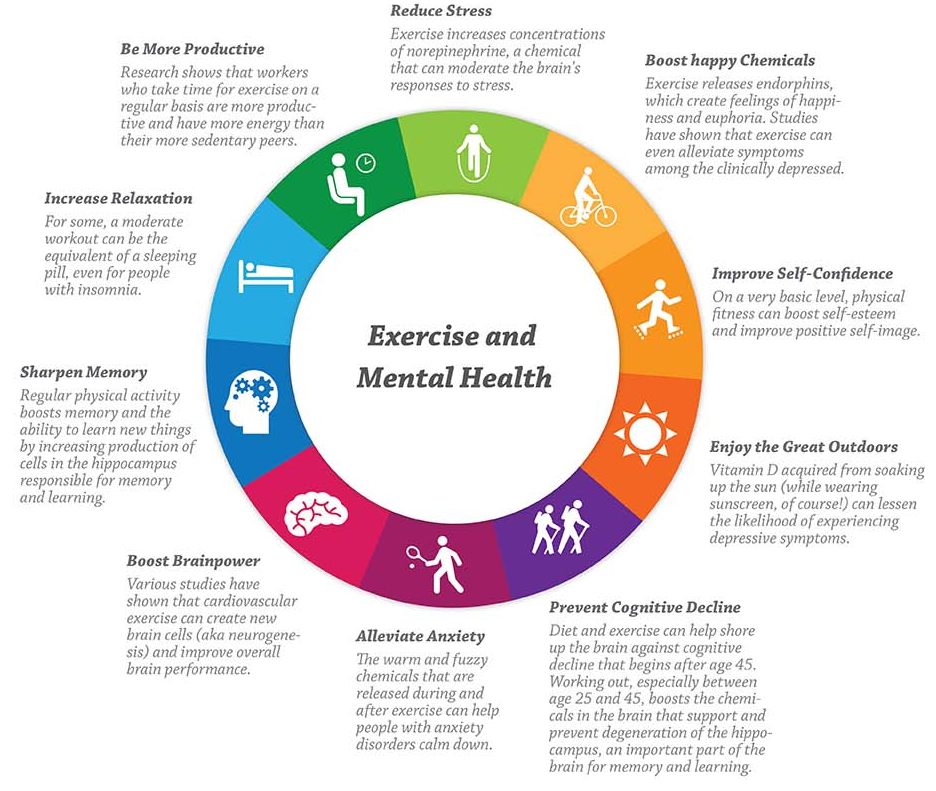
Unreasonable anxiety - why there is a constant state of anxiety
All people experience anxiety from time to time. For example, you can get nervous when you have a fight with a loved one or before taking an exam. Anxiety itself is not a very pleasant emotion, but it is completely normal.
Sometimes anxiety becomes persistent and uncontrollable. In situations where it interferes with everyday life, takes on a permanent or excessively acute character, the problem cannot be ignored. You should contact a specialist and figure out what anxiety means in your case. Perhaps you need qualified help.
Anxiety disorders are one of the most common mental illnesses in modern society.
Anxiety disorders are one of the most common mental illnesses in modern society. Usually a person cannot understand what anxiety means, from which it is impossible to get rid of. The disease makes you feel scared and restless for no apparent reason. If left untreated, it becomes a long-term problem and significantly reduces the quality of life. At the same time, no matter what form of anxiety disorder the patient suffers from, an experienced specialist will always select a therapy that will help to cope with the disease.
If left untreated, it becomes a long-term problem and significantly reduces the quality of life. At the same time, no matter what form of anxiety disorder the patient suffers from, an experienced specialist will always select a therapy that will help to cope with the disease.
What is the alarm
Common signs of anxiety disorders to look out for include:
- Feeling nervous and uncontrollable restlessness that is not appropriate for the situation;
- Unwarranted panic, premonition of catastrophe or death;
- Increased activity of the autonomic nervous system: dizziness, sweating, trembling, rapid breathing, palpitations, pain in the heart, dry mouth, nausea, stool disturbance;
- Sleep and appetite disorders;
- Problems with concentration, inability to distract from the object of concern;
- Anxiety, irritability;
- Strong, uncontrollable feeling of fear in relation to ordinary situations (phobias).

Anxiety, whatever it may be, always has characteristic features and causes. The concept of "anxiety disorder" is general and corresponds to several diagnoses, each of which has its own characteristics. It is important to distinguish one from the other in order to correctly diagnose and choose the correct treatment. Experience and high qualifications will allow a specialist to do this without difficulty.
Generalized Anxiety Disorder (GAD) is a mental illness characterized by so-called non-fixed anxiety. This is groundless anxiety, which does not depend on specific circumstances, but is persistent and uncontrollable. Physical manifestations in the form of vegetative symptoms are added to anxiety. All this greatly interferes with studying, working and communicating. Clinically significant is the presence of signs of GAD for 6 months.
A distinctive feature is the generalization of sensations: constant anxiety in GAD does not have a specific stressor, it is directed to life circumstances in general, including minor and unlikely situations. The course is permanent, the symptoms are always present, from time to time they intensify, but they never acquire an acute form, as in panic attacks.
The course is permanent, the symptoms are always present, from time to time they intensify, but they never acquire an acute form, as in panic attacks.
The concept of "anxiety disorder" is general and corresponds to several diagnoses, each of which has its own characteristics.
Panic disorder (panic attacks) are abrupt episodes of panic and discomfort, which are accompanied by fear of death and physical manifestations: interruptions in the heart, feeling short of breath, dizziness.
Unlike GAD, panic attacks occur spontaneously and acutely. Patients are in constant expectation of an attack, they experience a debilitating feeling of anxiety. With GAD, a person is constantly in a state of anxiety, but it is not associated with the expectation of an attack, but with bad forebodings and fears about all kinds of life situations.
Panic attacks are also important to distinguish from phobic disorders. Attacks can be one of the signs of a phobia and speak of its severity.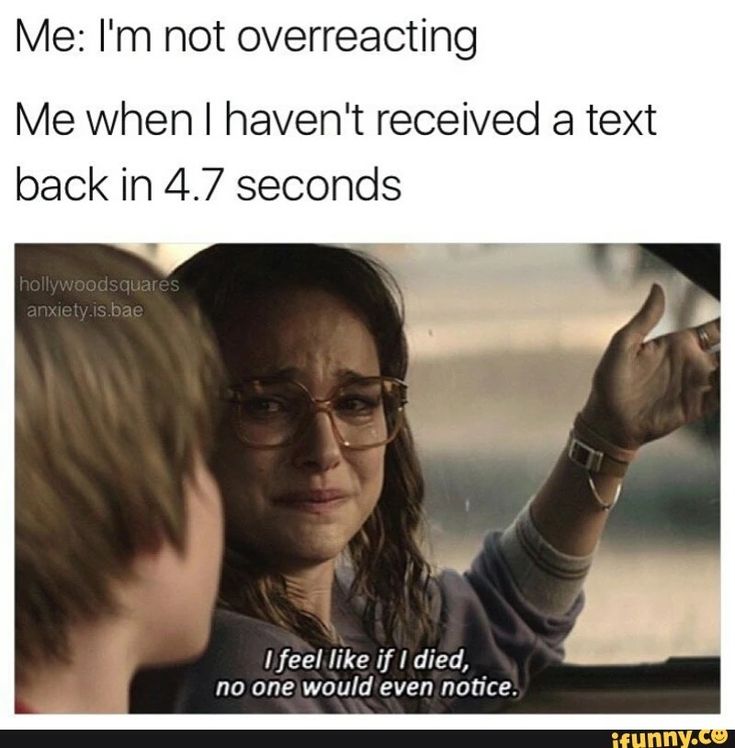 If there is a primary phobia, then it will be the main diagnosis.
If there is a primary phobia, then it will be the main diagnosis.
This disorder should be differentiated from obsessive-compulsive disorder (OCD), in which panic attacks can occur only when trying to suppress intrusive thoughts, and from post-traumatic stress disorder (PTSD). In the latter case, anxiety occurs only under certain circumstances that remind the patient of the cause of the trauma.
People suffering from this disorder do their best to avoid frightening circumstances, which can impose significant restrictions on lifestyle.
Phobic disorder (phobias) are acute episodes of panic that are associated with specific situations and objects. People suffering from this disorder do their best to avoid frightening circumstances, which can impose significant restrictions on lifestyle.
Among the phobias, there are social phobia - an overwhelming fear of social interactions, and agoraphobia, which is a complex of similar fears associated with the fear of open and closed spaces.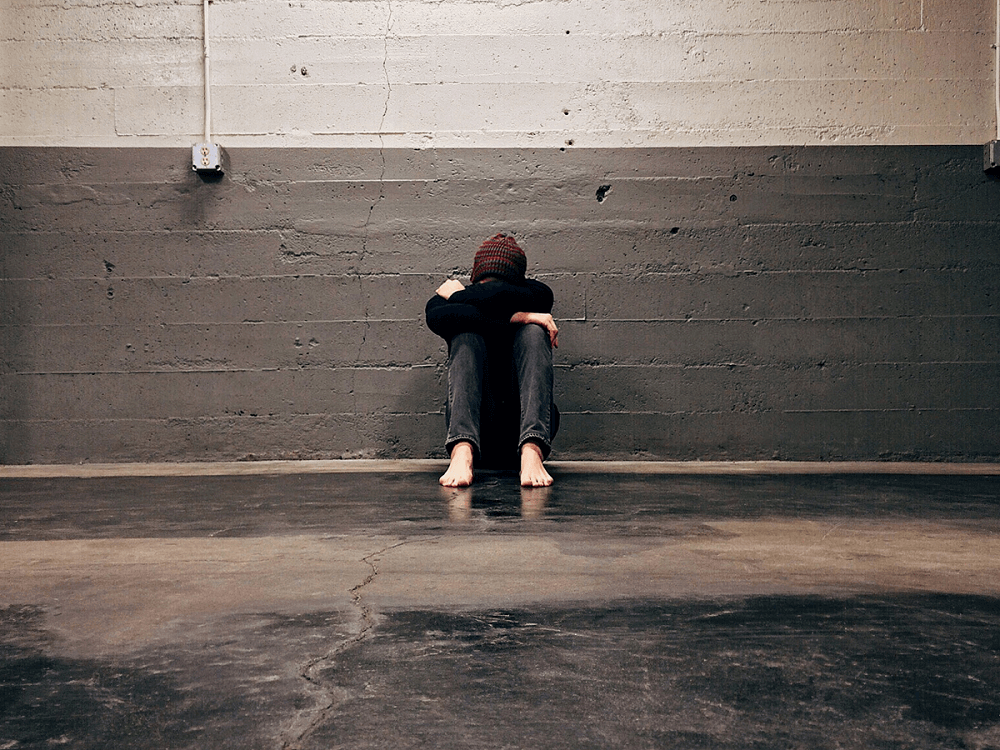 There are other isolated phobias, but a distinctive feature of this type is that the fear occurs in strictly defined situations and is limited only to them.
There are other isolated phobias, but a distinctive feature of this type is that the fear occurs in strictly defined situations and is limited only to them.
Anxious depression. The usual signs of an anxiety disorder are characterized by nervousness, irritability, problems with sleep and concentration. But, unlike other disorders, the depressive component is also mandatory - depressed mood, melancholy, lack of interest in life. In mixed anxiety and depressive disorder, the symptoms of anxiety and depression are present to an equal degree, without a clear predominance of one over the other, which does not allow them to be considered separately from each other.
Schizoaffective disorder is another disease in which mood disorders are observed: unreasonable anxiety, guilt, problems with concentration, irritability, and more. However, according to ICD-10, this diagnosis can only be confirmed when the psychotic symptoms of schizophrenia, such as delusions and hallucinations, are combined with affective disorders of a depressive or manic nature.
Obsessive-compulsive disorder (OCD) is obsessive ideas based on irrational thoughts and fears that force a person to perform certain actions - rituals (ritual behavior).
To alleviate concerns, a person can endlessly wash their hands, even if the skin on them becomes irritated and cracked.
Obsessions and compulsions greatly interfere with daily activities. If a person tries to ignore these thoughts, anxiety increases. Because of this, the patient is forced to continue to perform the ritual in order to relieve stress. OCD often centers around specific themes, such as the fear of germs. To alleviate concerns, a person can endlessly wash their hands, even if the skin on them becomes irritated and cracked.
Alarm causes. Diagnostics
The causes of anxiety disorders are varied, as are the types themselves. Usually, in the pathological state of unreasonable anxiety, the causes consist of a complex interaction of factors that may include:
- genetic predisposition;
- imbalance of neurotransmitters;
- personality traits: people with a labile psyche, sensitive temperament, prone to negative emotions;
- stressful situations, mental trauma, unfavorable living conditions, somatic diseases;
- use of drugs, alcohol, improper medication.
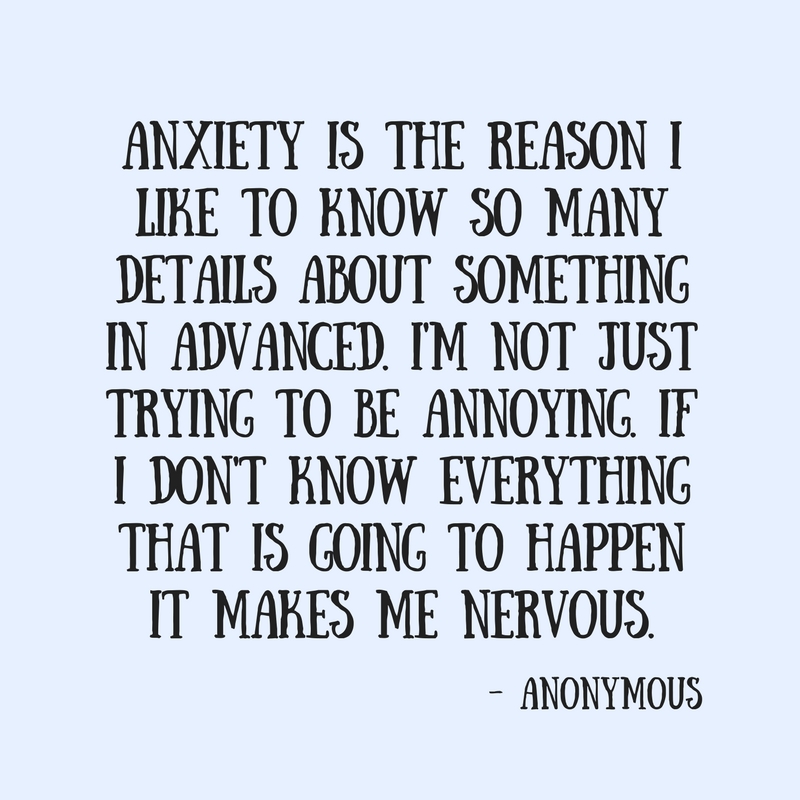
Only a qualified psychiatrist can correctly identify the causes of anxiety and provide assistance. You can not delay seeking help, as the condition may worsen and be complicated by social isolation, suicidal actions and various types of addiction.
To conduct a complete diagnosis of the condition, the doctor uses the following methods:
- Psychiatric examination - a specialist collects a detailed anamnesis, takes into account clinical manifestations and compares them with diagnostic criteria.
- Pathopsychological research is a modern technique that helps to understand the personal characteristics and psychological state of the patient.
- Laboratory and instrumental examination - Neurotest and Neurophysiological test system allow you to get an objective picture of the state of the nervous system and cognitive functions, EEG and other instrumental techniques help to exclude organic pathology
Treatment of anxiety and anxiety disorders
Treatment depends on the type of disorder and may include one or a combination of the following approaches.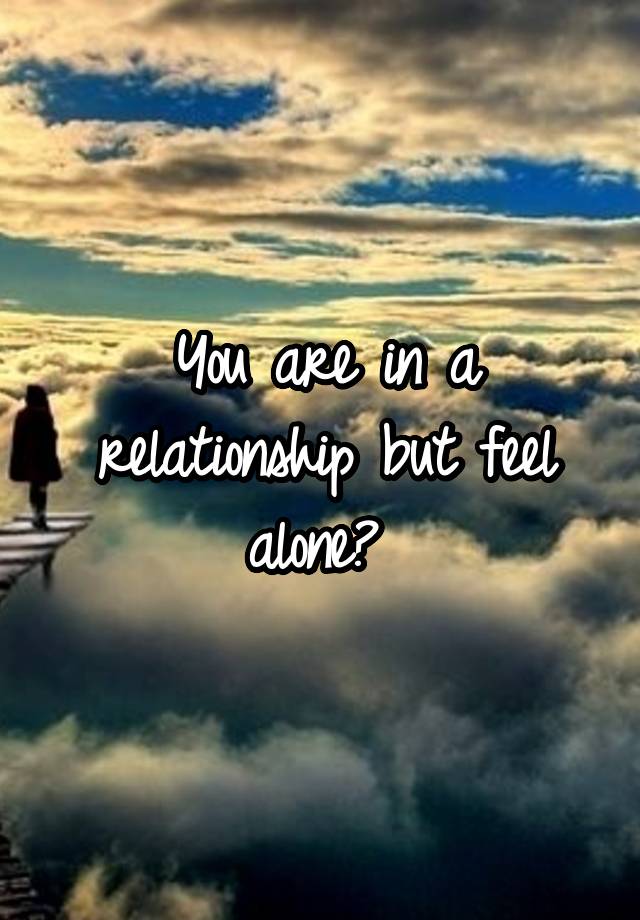
Individual psychotherapy is the main treatment for any type of disorder. Allows you to find out why anxiety has arisen and whether it is pathological. Clinical signs are analyzed and problems are worked out.
One of the effective methods for correcting anxiety disorders, especially phobic ones, OCD and GAD, has become cognitive behavioral therapy. With the help of modeling problem situations, the patient, under the guidance of a doctor, learns to cope with panic and acquires skills that allow him to return to a normal lifestyle.
Drug therapy to eliminate acute symptoms, relieve anxiety and depression, if necessary, mild pharmacotherapy with antidepressants or modern tranquilizers can be used.
As additional methods that accelerate adaptation and help to cope with stress, physiotherapy, breathing exercises, art therapy, biofeedback therapy are used.
Important
When to seek immediate help:
- When the condition interferes with work, relationships and other areas of life;
- If the person cannot control their fear or intrusive thoughts;
- If a person feels constantly depressed, disturbed in sleep and concentration, consumes large amounts of alcohol to cope with anxiety;
- There are suicidal thoughts.
